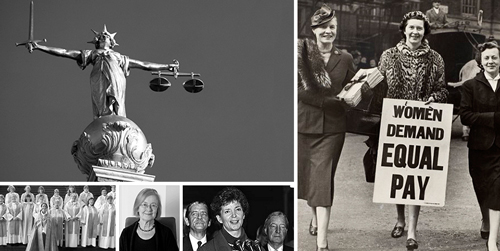
The Housing (Homeless Persons) Act 1977 provided the first legal definition of homelessness and imposed a duty on all local authorities to provide long term housing for homeless people who met particular conditions. The passing of the Act was significant because, for the first time, women were able to make a direct and legally enforceable claim upon the state when they were facing a housing crisis, rather than being reliant upon the discretionary and often arbitrary policies of local authorities. Moreover, because the Act gave priority to pregnant women and those responsible for children, it put an end to the cruel practice of taking the children of homeless women into care in order to avoid having to house their families, and provided statutory recognition of the needs of non-traditional families. Equally significant was the definition of homelessness set out in section 1(2)(b) which included people who had accommodation but were at risk of domestic violence if they continued living there. For those who had fled from violence, section 5(1)(iii) provided an exception to local connection rules for people who ran a risk of domestic violence if they returned to the area where they had local connection.
The Act was important as it addressed the failures of the state to recognise the particular vulnerabilities of women in connection with housing. However, it did so in a way which perpetuated notions of women as dependent and victimised and created a complex legal apparatus which is often extremely remote from the day to day experiences of women facing housing crises.
The full version of this landmark is written by Laura Binger and Helen Carr